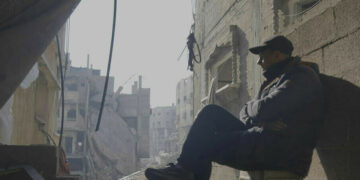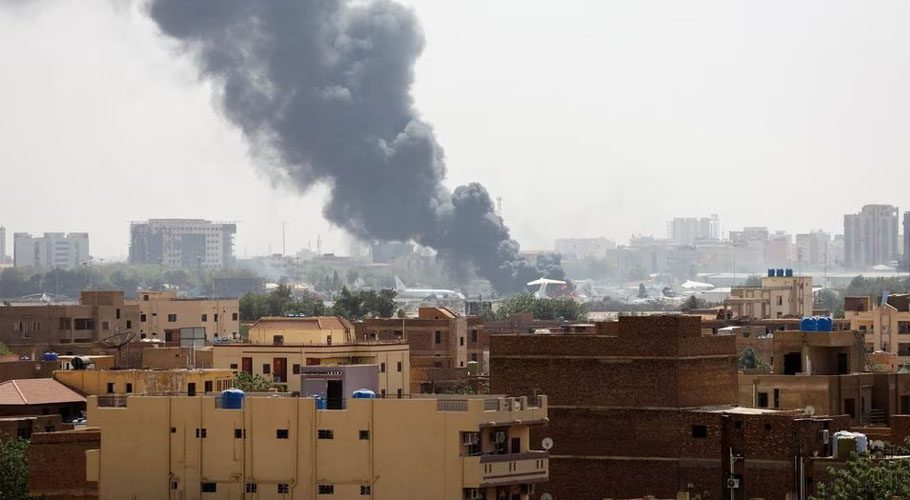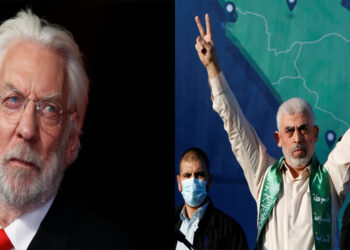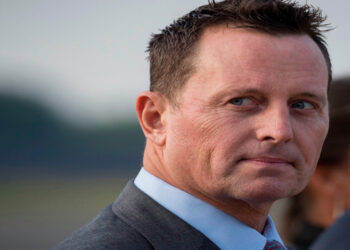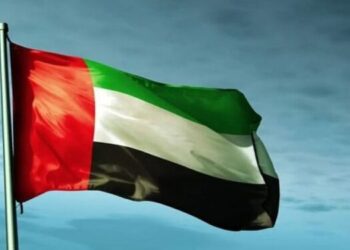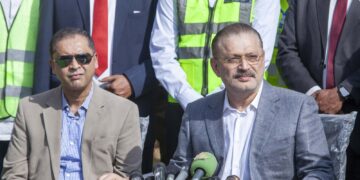![]() Follow Us on Google News
Follow Us on Google News
KHARTOUM: Fighting between the army and the paramilitary Rapid Support Forces (RSF) has killed at least 185 people and injured more than 1,800, said U.N. envoy Volker Perthes amid airstrikes and fighting in Khartoum and strife across Sudan.
Their power struggle has derailed a shift to civilian rule and raised fears of a wider conflict.
Sudan’s battling factions both claimed to have made gains on Monday as violence cut power and water in the capital, and the U.N. envoy to Sudan said the two sides showed no signs of being willing to negotiate.
Smoke hung over the capital, and residents reported a clamour of airstrikes, artillery fire and shooting that shut hospitals in a city unused to violence.
“The two sides who are fighting are not giving the impression that they want mediation for a peace between them right away,” Perthes told reporters by videolink from Khartoum.
He said the sides had agreed a three-hour humanitarian truce. But for a second day fighting continued despite the promise of calm, according to Al Jazeera and Al Arabiya TV reporters broadcasting from Khartoum.
The fighting in Khartoum and its adjoining sister cities of Omdurman and Bahri since Saturday is the worst in decades and risks tearing Sudan between two military factions that had shared power during a rocky political transition.
Army chief General Abdel Fattah al-Burhan heads a ruling council installed after a 2021 coup and the 2019 ousting of veteran leader Omar Bashir during mass protests. RSF leader General Mohamed Hamdan Dagalo, known as Hemedti, is his deputy.
Egypt and the United Arab Emirates were working on a ceasefire proposal for Sudan, two Egyptian security sources said. Cairo is the most important backer of Sudan’s armed forces while Hemedti has cultivated ties with foreign powers including the United Arab Emirates and Russia.
In a speech broadcast by Egyptian state television late on Monday, Egypt President Abdel Fattah al-Sisi said he was in regular contact with the army and RSF to “encourage them to accept a ceasefire and spare the blood of the Sudanese people”.
Under an internationally backed transition plan, the RSF was shortly due to merge with the army. Burhan on Monday branded the RSF a rebel group and ordered it dissolved.
In comments to Sky News, Burhan said he was secure in a presidential guesthouse in the defence ministry compound. The army later said the scope of security operations was widening, which would cause restrictions on citizens’ movements.
RSF leader Hemedti, whose whereabouts since Saturday have not been disclosed, called the army chief “a radical Islamist who is bombing civilians from the air”.
While the army is larger and has air power, the RSF is widely deployed inside neighbourhoods of Khartoum and other cities, giving neither faction the edge for a quick victory.
The violence could destabilise a volatile region and play into competition for influence there between Russia and the United States, and among regional powers that have courted different actors in Sudan.
The European Union said its envoy to Sudan was assaulted in his residence on Monday but did not give details.
U.S. Secretary of State Antony Blinken spoke to Burhan and RSF Commander Mohamed Hamdan Dagalo to urge a ceasefire and said both sides had a responsibility to “ensure the safety and wellbeing of civilians, diplomatic personnel, and humanitarian workers,” the State Department said.
HOSPITALS DAMAGED
Offices, schools and petrol stations in the capital were shut on Monday, while health services were widely disrupted and doctors said most major hospitals had gone out of service.
The bridges linking Khartoum with Omdurman and Bahri across the Nile River’s two main branches were blocked by armoured vehicles, and some roads leading from the capital were impassable. Television images showed a fire raging at the international airport inside the city.
With water and power cut across large parts of the capital, some residents were venturing out to buy food, forming queues at bakeries.
There has been no police presence on the streets of Khartoum since Saturday, and witnesses reported cases of looting.
“We’re scared our store will be looted because there’s no sense of security,” said Abdalsalam Yassin, 33, a shopkeeper who had bought extra stock ahead of the coming Eid al-Fitr holiday.
U.N. chief Antonio Guterres urged a return to calm, saying an already precarious humanitarian situation was now catastrophic and U.N. aid chief Martin Griffiths said fighting had shuttered many aid programmes.
The eruption of fighting over the weekend followed rising tensions over the RSF’s integration into the military.
Discord over the timetable for that process delayed a framework deal for a civilian transition that was due to be signed earlier this month.
Egypt’s Sisi also said he is in touch with the RSF to ensure the safety of Egyptian troops, who had been in Sudan for joint military exercises.

